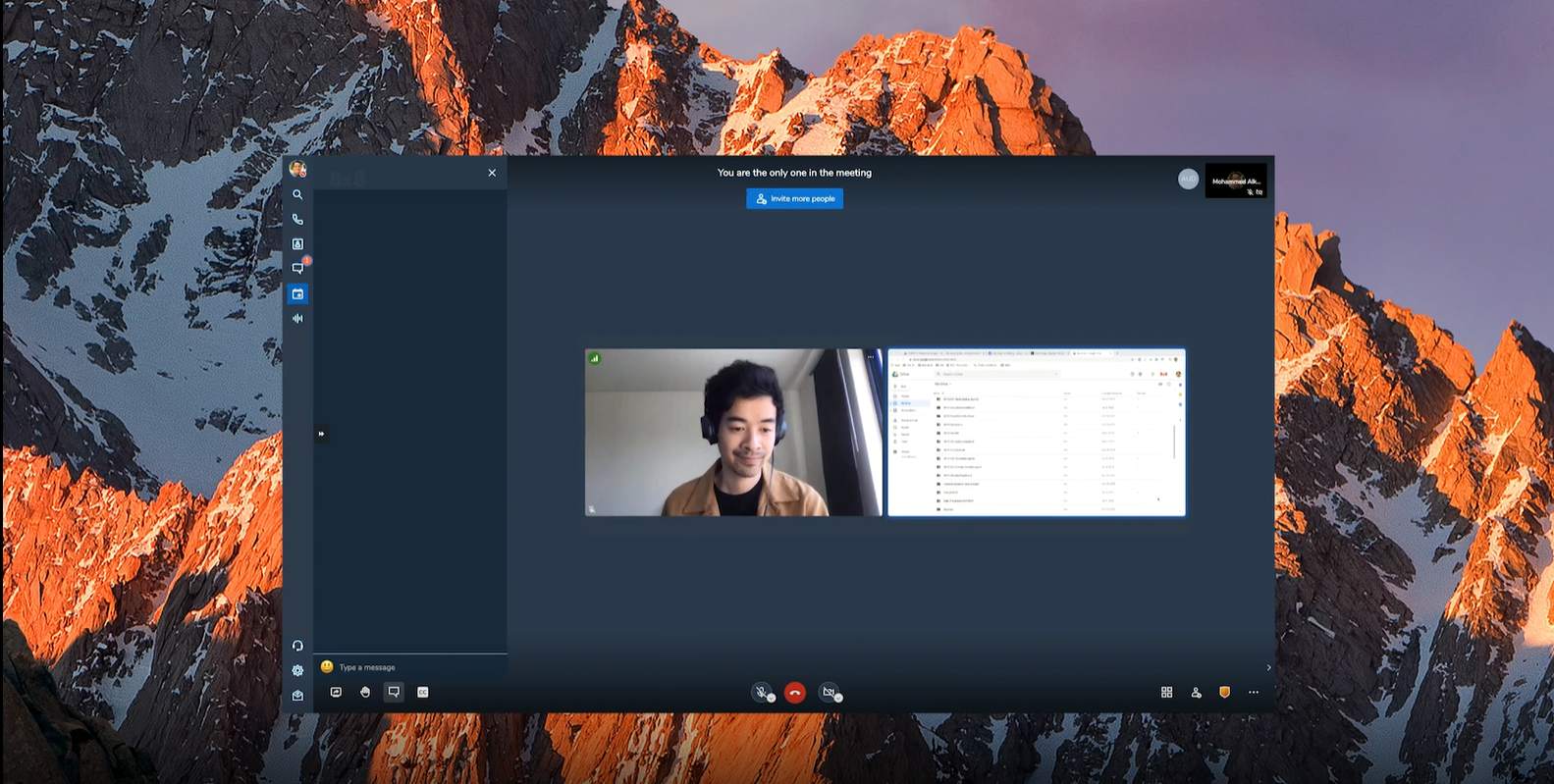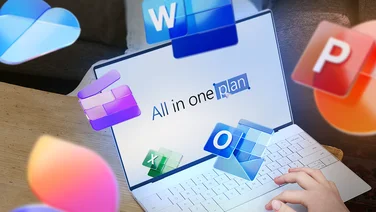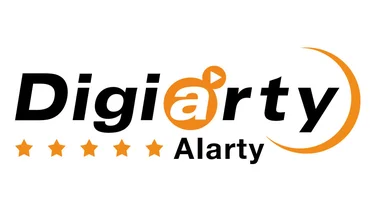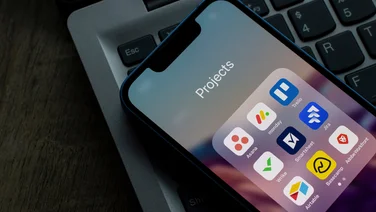To help us provide you with free impartial advice, we may earn a commission if you buy through links on our site. Learn more
- Get a free VoIP quote now
- What is VoIP, and what does it do?
- How is VoIP different from Wi-Fi calling?
- What do I need to make VoIP calls?
- How do I choose my ideal VoIP service?
- How much does a VoIP plan cost?
- What are the best VoIP plans for home users?
- What are the best VoIP plans for small businesses?

VoIP (Voice-over Internet Protocol) was a bit of a tech buzzword in the noughties, when Skype exploded out of Estonia to transform the way the world talked. Out went wildly expensive international phone calls, and in came free calls over the internet.
Skype may no longer be on everyone’s lips and laptops, but VoIP is more relevant than ever, especially following the enforced separations of the pandemic. Free VoIP apps such as FaceTime and WhatsApp have slashed millions of phone bills to nothing.
But the VoIP apps we’re interested in here are premium services that dramatically slash your phone bills, especially if you have loved ones overseas. Vonage For Home, for instance, asks just £10/mth (+£15 upfront) for unlimited calls to UK landlines, or £19/mth for unlimited calls to India and 60 other countries. That could save you a much-needed fortune.
With small businesses also facing a cash crisis, VoIP providers like 8×8 and RingCentral could be life savers. Features such as group video conferencing and call recording start at under £10/user/mth, vastly undercutting landline and mobile bills.
Below, we’ll quickly explain how VoIP works and what it does. Then we’ll discover which VoIP deals are the best fit for your home or business.
READ NEXT: The best VoIP providers
Get a free VoIP quote now
Strapped for time? Take our quick survey below and we’ll provide you with a free quote for a VoIP system that suits you.
What is VoIP, and what does it do?
VoIP stands for “voice-over internet protocol”. It sends audio and video data over the internet, so you can make and receive calls and send and receive messages, using your broadband or mobile data instead of a landline or mobile network.
VoIP’s history goes back decades. The first voice data packets were transmitted in 1973 by scientists at MIT, and then in 1989 Brian C Wiles developed a way for video gamers to communicate with each other over dial-up modems while playing. Wiles would go on to work with the team behind Skype, which launched in 2003 and immediately gave people a way to call for free, as long as their internet connection was up to it.
Today’s best VoIP services take full advantage of blazing fast broadband to enable group video calls across oceans. These pro features are rarely free, but VoIP is almost always cheaper than traditional landline or mobile services. If you have family abroad, or you run a small business and need to call overseas, the savings you can make by switching to VoIP are spectacular.
How is VoIP different from Wi-Fi calling?
You may have seen “Wi-Fi calling” mentioned in mobile packages from the likes of Sky Mobile, Three, EE and BT Mobile. It sounds similar, but it’s not VoIP. Instead, it’s basically an internet backup for your mobile network. The best WiFi calling services connect you automatically so you don’t even notice if a call has switched from mobile to Wi-Fi (or data). Many also let you make calls without a SIM card. But while Wi-Fi calling is a great extra to have in your mobile package, but doesn’t stand to slash your phone bills in the same way that VoIP does.
What do I need to make VoIP calls?
You can make basic VoIP voice and video calls with nothing more than an internet access and a device with a free VoIP app such as WhatsApp or Facebook Messenger. VoIP works on any net-connected device with a mic and speaker, including Amazon’s Echo Show and the Ring Video Doorbell, as well as most smart TVs and computers. And, oh yes, smartphones.

Serious phone callers, though, will want to invest in a VoIP package that includes unlimited (or lots of) calls for a monthly fee. You don’t need a special phone for this, but if you’re a business user you may want one, or even a network of them.
Read on to discover what to look out for when choosing your ideal VoIP provider, and how much you might expect to pay.
Interested in finding how much a new telephone system could cost?
Find the best VoIP provider for you
How do I choose my ideal VoIP service?
If you’re a home user, and you want to cut your eye-watering phone bills, here are the main factors to look for:
- Ease of use, speed of setup and availability of online support. Vonage For Home earns plaudits for its user forum, live chat and online knowledge base.
- Enough calls to your desired destination. The £7.20/mth starter plan from UK-based bOnline includes 100 minutes free to UK landlines and mobiles. Even if you edge into PAYG, it’ll still work out cheaper than landline calls. Vonage For Home has packages specifically aimed at people who make long-distance calls to countries including India, Australia, the US and South Africa. But don’t pay for unlimited calls to unlimited countries if you don’t need it.
- Video conferencing, in case you want to video-chat to multiple family members at once. Not all consumer packages offer this, so make sure to check the plan.
- Voicemail, caller ID, forwarding and hold options. Provider 8×8 even includes hold music!
- Automatic transcripts of calls and voicemail messages. This may seem like a business feature, but it could be a godsend for older people who don’t hear as well as they used to.
If you’re a small to medium business, look for all of the above plus:
- Integration with office apps such as Slack, Google Workspace and Office 365. Dialpad is great on this, and also gives you access to innovative AI features such as real-time conference analysis.
- Call management functions (hold, call transfer/divert, custom voicemail, call lists and so on). Provider 8×8 shines here, with an option to route calls to other numbers outside business hours. Vonage even offers a “virtual receptionist”.
- Video conferencing, call recording, secure document sharing, additional VoIP numbers and kit such as earpieces and touchscreen desktop phones.
- Annual payments, which save a fair chunk compared with paying monthly. All the business plan prices we quote below apply if you pay annually.
- A free trial to see if you get on with the service. bOnline gives you 30 days free.

How much does a VoIP plan cost?
For unlimited calls to mobiles and landlines, plus features such as video conferencing, expect to pay from around £12-14/mth. Given that this effectively renders your calls free, that’s a great deal for any small business or home user.
READ NEXT: Our pick of the best broadband providers this year
What are the best VoIP plans for home users?
* Vonage For Home starts at £7/mth (+£5 delivery) for 1,000 minutes of talk time to UK landlines, and 10p/min to UK mobiles. The Talk UK plan is £10/mth (plus £5 delivery and £10 activation charge) for unlimited calls to UK landlines; Talk World is £15 (+5 delivery) for unlimited calls to UK landlines and more than 60 countries; and Talk World India adds India for £19/mth (+£5 delivery). You get a 30-day money-back guarantee.
Vonage From Home plans are charged monthly, and you can cancel when you want. However you’ll need to fill in the cancellations forms to end your subscription.
* 8×8‘s Express package costs £10/mth (paid annually) for unlimited UK calling and a few cool extras such as music on hold. If you regularly call loved ones overseas, consider the ‘X2’ package, currently on offer at just £19/mth/user for unlimited voice calling to 14 countries including Australia, the US and Spain. This plan also includes HD video and audio conferencing and voicemail transcripts.

* Xinix ties you into an 18-month contract, but you get get plenty of useful features including caller ID, voicemail and call waiting. The Basic plan costs just £6/mth for three months (then £12/mth) and cuts UK calls to bargain PAYG rates. Standard (£7/mth, then £18/mth) includes 500 minutes free; Supreme (£12/mth then £25/mth) gives unlimited minutes to 45 countries.
* Dialpad, like 8×8, is also included in our business picks, but its Standard plan (£12/mth/user, or £18 paid monthly) is a fantastic deal for home users too: unlimited calling; AI-powered call and voicemail transcripts; unlimited video meetings and web and chat support.
Interested in finding how much a new telephone system could cost?
Find the best VoIP provider for you
What are the best VoIP plans for small businesses?
* Dialpad‘s Pro plan includes everything in Standard (see above) and adds a ton of business features including call management and office app integration for £20/mth/user. You get a free 14-day trial.
* 8×8 starts at £10/mth/user for Express, with unlimited UK calling; ‘X2’ is currently £19/mth/user for unlimited voice calling to 14 countries plus HD video and audio conferencing; ‘X4’ is £36/mth/user for advanced call handling and analytics.
* RingCentral starts at £8/mth/user for Essentials which gives you document sharing, 24/7 customer support and 100 minutes free. Standard is £15/mth/user for video meetings and call recording plus 750 minutes free. The best plan for small to medium businesses, though, is Premium, which costs £20/mth/user for automatic call recording, advanced call handling and tons of business features and platform integrations.
* Vonage starts at £9/mth/user for its basic Select plan, which includes call forwarding and transfer and Vonage Meetings. Professional, which adds unlimited calls to UK landlines, a virtual receptionist and on-demand call recording, costs £12.50/mth/user. Ultimate, which adds unlimited calls to UK mobiles and company-wide call recording, is £16.50/mth/user.
* bOnline starts at £7.20/mth/user for Starter (the advertised price of £6 is before VAT), for 100 outbound landline minutes and your own VoIP phone number. Unlimited UK landline and mobile calls cost £16.20/mth/user including VAT. You get 30 days’ free trial.
Interested in finding how much a new telephone system could cost?
Find the best VoIP provider for you






